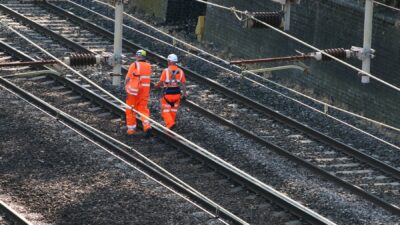Putting customers at the heart of the Rail Review
The Rail Review launched on 20 September is (at least) the fifth major rail review in eight years. But how can passenger and freight customer interest genuinely be placed at the heart of rail in Great Britain? One approach is to take a look at another sector that has had its fair share of criticism over the last decade, and find a substantially different approach that favours the consumer.
Issues over the last decade in the financial services sector mean that banks, insurance companies and other providers now have to prove that they are treating customers fairly. The Financial Conduct Authority regularly checks that customers are indeed treated fairly, and acts where there are unfair outcomes.
Treating customers fairly involves the following four perspectives, which when satisfied ensure that customers get a good deal, and that providers earn enough profit to continue providing their services.
First, consumer value to offer value for money—you get what you pay for. Second, consumer choice to uphold the freedom for each customer to have a choice about the best product for them. Third, consumer protection to safeguard vulnerable customers. Fourth, business requirements to ensure that providers are able to continue offering their services to consumers.
These four principles are highly applicable in the rail sector, and would help customers to get a fair deal when using rail services. Imagine a journey where there is a choice of operators, or ways of paying for your ticket where the service is a natural monopoly. Customers without a choice are protected by regulation that provides services that are value for money, and service continuation that allows people to plan their lives. Companies providing services are able to earn sufficient profits to keep reinvesting in those services. And vulnerable customers understand the ticket that they are buying, and feel that it’s the right choice for them.
A few simple principles such as these allow a whole range of issues to be discussed—for example, whether higher fares should be maintained on some routes, in order to allow premium payments to be recouped by the Department for Transport and recycled elsewhere on the network (this would go against consumer value and consumer choice, but currently allows funding for lower-yielding services to be maintained). Meanwhile, ensuring that sustainable businesses are providing services enables well-run, efficient businesses to focus on delivering consumer value.
Focusing the Rail Review on objectives, as opposed to industry structures, ownership models or the form of political intrusion in the sector, has to be the right place to start. Structures and models naturally follow the objectives.
Related

The 2023 annual law on the market and competition: new developments for motorway concessions in Italy
With the 2023 annual law on the market and competition (Legge annuale per il mercato e la concorrenza 2023), the Italian government introduced several innovations across various sectors, including motorway concessions. Specifically, as regards the latter, the provisions reflect the objectives of greater transparency and competition when awarding motorway concessions,… Read More

Switching tracks: the regulatory implications of Great British Railways—part 2
In this two-part series, we delve into the regulatory implications of rail reform. This reform will bring significant changes to the industry’s structure, including the nationalisation of private passenger train operations and the creation of Great British Railways (GBR)—a vertically integrated body that will manage both track and operations for… Read More

